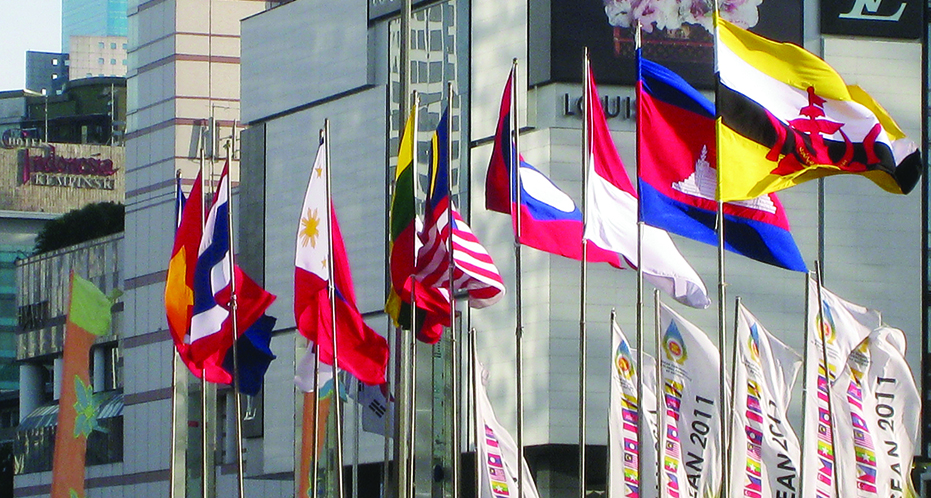Driving commercial and political engagement between Asia, the Middle East and Europe
Driving commercial and political engagement between Asia, the Middle East and Europe
Driving commercial and political engagement between Asia, the Middle East and Europe

Asia House’s publication, Asia House Insights: Asia Trade in the New Global Order, brings together the thoughts of leading figures in global trade. Here, Dr Liam Fox, UK Secretary of State for International Trade, outlines the opportunities for trade between ASEAN and the UK.
 The Association of Southeast Asian Nations (ASEAN) is a region full of opportunity. In the 50 years since its formation, it has achieved impressive economic growth with its member countries coming together to promote the benefits of trade.
The Association of Southeast Asian Nations (ASEAN) is a region full of opportunity. In the 50 years since its formation, it has achieved impressive economic growth with its member countries coming together to promote the benefits of trade.
ASEAN promotes security and cooperation between its member countries, as well as the rules-based international system – these are principles that we share. It is where we see ASEAN as like-minded partners, and where we look forward to continuing to grow our partnership.
The region will play a vital role in the UK’s future. The UK exports twice as much to South East Asia as we do to India. We have bigger investments in ASEAN than we do in China and India combined, and there is no doubt that the region is an important and growing source of inward investment into the UK.
With an average GDP growth rate of 5 per cent, the Asian Development Bank predicts that ASEAN is on course to be the fourth largest ‘single market’ in the world by 2030. Paired with a young, dynamic population, the opportunities in this rapidly-growing region are boundless.
As we leave the European Union (EU) and prepare to deliver our first independent trading policy in 40 years, the UK wants to build a modern, dynamic and deeper partnership with ASEAN where there is huge potential for partnership, collaboration and growth.
The UK has much to offer ASEAN, and ASEAN the UK. With a presence in all 10 ASEAN nations, we also have a substantial regional footprint. More than 30,000 students from South East Asia attended our universities last year, and more than 2.3 million Brits visit the region annually.
Indeed, increasing numbers of British businesses are looking to establish themselves across ASEAN, supporting growth and jobs on both sides. I often repeat the fact that the International Monetary Fund estimates that, in the next 10 to 15 years, 90 per cent of global economic growth will originate from outside the EU. ASEAN is at the heart of this growth.
The Department for International Trade is continuing to allocate more resources to increase trading opportunities across ASEAN. This includes holding regular government- to-government dialogues in trade and investment and supporting trade reviews to identify key market access barriers.
Earlier this year, I appointed Natalie Black as Her Majesty’s Trade Commissioner for Asia Pacific, where she will lead the government’s trade and investment promotion and policy work in the region. With our total trade with ASEAN increasing by almost 11 per cent to £36.5bn in the year 2016–17, Natalie will be based in the region to grow this even further.
In February, we established the first UK Export Finance (UKEF) post in Indonesia to improve access for businesses to trade finance. UKEF can provide finance to secure exports in local currency for many ASEAN markets, and has increased its risk appetite to a total of £26.5bn across the ASEAN member countries.
Our commitment to the region will only continue and increase. The UK Prosperity Fund is currently commencing delivery of several programmes, worth around £200 million over five years, across the region. This includes a programme to support economic reform and a transition programme accelerating South East Asia’s adoption of low-carbon energy.
In addition, a contribution of at least £18m will be made annually towards scientific research partnerships in ASEAN through the Newton Fund until 2021, while the British Council is also leading a consortium to deliver a multimillion-pound project aimed at harmonising higher education standards across ASEAN.
We know that these programmes are helping to break down barriers to trade.
As we leave the EU, we are seeking continuity of our trading relationships for business and consumers in both the UK and partner countries.
At the March European Council, we agreed with the EU that the UK will now be able to negotiate our own bilateral trade and investment agreements. This will allow us to step out into the world and forge our own way by negotiating, ratifying and signing trade deals with old friends and new allies.
This will allow us to build trade relationships in the shared pursuit of prosperity and security.
We are also exploring the potential for us to accede to the Comprehensive and Progressive Trans-Pacific Partnership (CPTPP) and increase trade and investment between the UK and ASEAN Member States. We share the commitment to the principles of free trade that underpin the CPTPP, laying the foundations for a meaningful partnership.
During my visit to Singapore earlier this year, I met several government ministers to discuss the UK’s potential accession to the CPTPP. I also met Japan’s Prime Minister, Shinzo Abe, this summer to discuss our future trading relationship, including how we can build on the existing EU EPA and our joint commitment to free trade. I was delighted to see his encouragement for the UK joining the CPTPP in an interview with the Financial Times.
The steps forward we’re making in ASEAN are just the beginning of our ambition for the region. Britain wants to be ASEAN’s leading partner in the West, and the UK Government is committed to supporting and developing our already-prosperous trading relationship.
